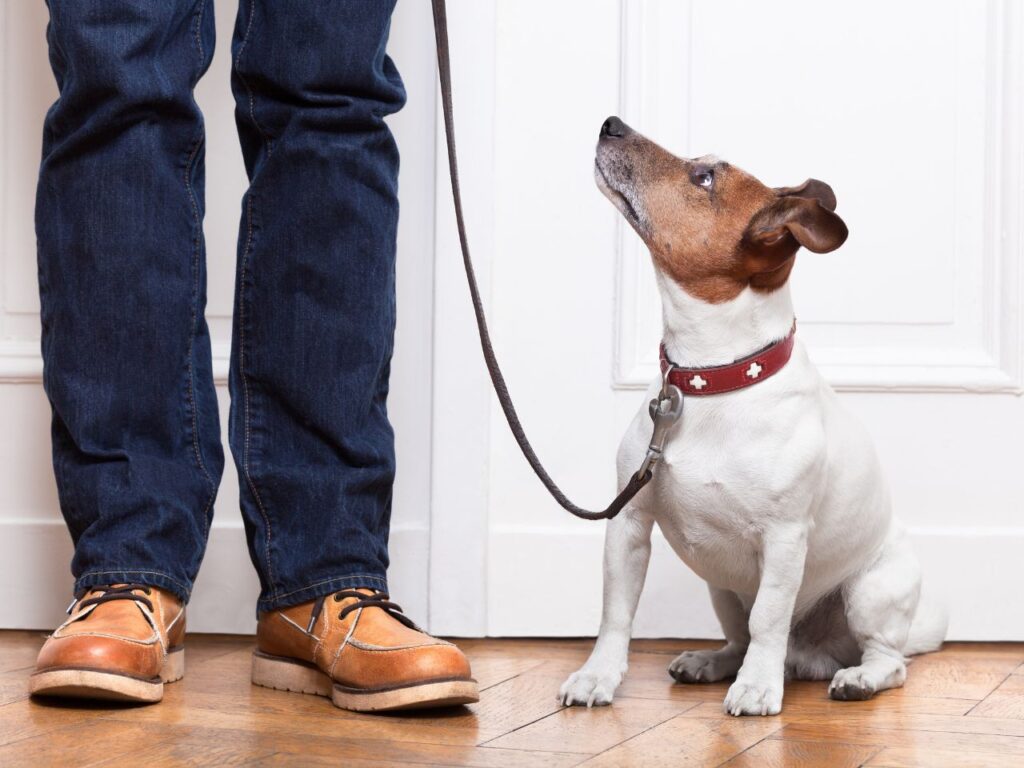The beloved Bichon Frise. They are one adorable ball of white fluff! This breed has many unique traits and is known for its cheerful personalities and social nature. Owning a Bichon, as rewarding as it is, comes with its fair share of challenges, especially when it comes to potty training.
Are bichons hard to potty train? Yes, bichons can be more difficult to potty train than other breeds but are fully capable of being housebroken. It’s not that it’s difficult but that it can take more time. Bichon puppies are easier to housebreak than adult Bichons but both can be housebroken if training is consistent.
Bichons are small dogs, and small dogs have smaller bladders than large dogs. This means they may need to be let out more frequently than larger dogs.
If you are having issues with potty training your Bichon then you are in the right place! I believe that no matter the issue any Bichon can be trained and rehabilitated.
Potty training an adult Bichon is a little different than training a Bichon puppy, but the difference is negligible. Before we jump into the tips let’s look into the differences.

Housebreaking an Adult Bichon
It’s unfortunate, but many Bichons, and other pure breeds, wind up in animal shelters. Since Bichons are a popular breed there are more and more people finding that their adopted Bichon isn’t potty trained. There are a variety of reasons an adult Bichon may have trouble with being housebroken.
Bichons can be stubborn and self-willed but that is often caused by inconsistent training. You’ll need to try and diagnose the reason your dog is not controlling his elimination.
Reasons An Adult Bichon May Be Eliminating Indoors:
- Anxiety urination. An adult Bichon with this problem is urinating out of fear. If he is adopted it could be from previous trauma and abuse, or it could be from the anxiety caused by being taken out of their home, put into a shelter, and then moving into a new home. Housebreaking a Bichon with this condition will take time, gentleness, and patience.
- Submissive urination. This can be caused by anxiety too but is often from excitement. Dogs that display this type of behavior may lay down on their backs at your feet, or in front of other dogs, as a sign of submission. They may appear to be overly excited when they urinate, but it can also be a form of anxiety.
- Disease or urinary infection. Older Bichons with an indoor urination problem could be eliminating because of health issues. If you have an adult Bichon and this is an issue you should take him to the vet for a check-up. It may not be the cause, but it could be, and you should play it safe.

Housebreaking a Bichon Puppy
Potty training a Bichon puppy is a little easier. When dogs are young they absorb things quickly. Bichons are very intelligent and quick-witted. At times they can be stubborn, for sure, but proper training can remedy that.
A Bichon puppy can be expected to control its bladder for one hour each month of age. It’s important to keep your Bichon in a controlled environment during the puppy stage. If he’s allowed to roam the house freely he will have accidents in the house and possibly on furniture, so it’s important to keep him in an area that will be easy to clean up his messes.
You should never scold or punish a Bichon puppy for eliminating in the house as his bladder does not have the muscles needed to control elimination. If there is no one to take your Bichon out every hour for each month of his age, any accidents in the house bare the responsibility of the owner.
6 Tips For Potty Training A Bichon
These tips work well for adult bichons and bichon pups. Whatever method of training you use for housebreaking, it’s important to be consistent. Any break inconsistency will send mixed messages to your dog.
Crate Train Your Bichon
I believe that most dogs should be crate trained, but the reality is that most dog owners don’t do it. A lot of complications with potty training can be avoided if crate training is used.
The point of incorporating crate training into potty training is that dogs are hard-wired not to soil in their den. It significantly reduces the number of accidents they may have. Of course, it will take time for a small pup’s bladder to develop, but once it does you better believe that he will act according to how he is wired. Unfortunately, there are a lot of wrong ideas about crate training.
Let me address the myth that crate training is cruel. It’s not cruel at all when used properly. it’s quite the opposite! In nature, dogs sleep in dens. The right size of crate, especially if the sides are covered, provides a sense of security for dogs when they are in there. Bichons that are crate trained properly will love their crate! I recommend leaving the doors to the crate open most of the time. If they, regularly, go into their crate, the times you do have to lock it won’t be an issue because they are accustomed to being in there.
Problems arise when dog owners use their dog’s crate as a method of punishment or keep them in there for extended periods. You never want to scold your Bichon when placing him in his crate. Doing this will condition him to associate punishment, and negativity with his crate. He will view it as a bad thing to be in there. It’s perfectly acceptable to put him in his crate at times when he is misbehaving but not by scolding him. His crate should, mostly, be a happy place for him.
Limit From House Until Trained
A Bichon puppy needs to be kept in an area that he can eliminate if you aren’t able to take him out in time. Remember, 1 hour for every month of age. If he isn’t being crate trained then he should be limited to the kitchen or a safe area that can handle urination and feces. As his bladder grows and he has more control over it you can, slowly, give him access to other areas of the house.
For an adult Bichon, crate training should be a must. Limiting his privileges to the house is a good idea until he makes progress in his training.
Feed Your Bichon On A Regular Schedule
Bichons thrive in consistent and structured environments. You should implement a regular feeding schedule. Stick to the times that you feed him each day and limit treats. If he is having problems with being housebroken it might be better to feed him earlier in the day, or at a time when you will be available to let him out afterward. Feeding before leaving the house or before going to bed is a recipe for disaster.

Tether Your Dog To You
This requires a commitment and isn’t for everyone, but if you want to speed up the training, keep him on a leash that is tethered to you. Ask him, frequently, if he needs to go to the bathroom, and bring him outside if it seems he does. If he has an accident, you’ll be there right with him. Teach him not to eliminate in the house by catching and stopping him in the act, then bring him outside to finish.
Use Paper Pads
I like paper pads and think they work well for both adult Bichons and pups. When you think your Bichon needs to use the bathroom then place him on the pad and signal him to go. Also, paper pads are great if you want to catch your Bichon in the act. If you see him eliminating, simply, pick him up and place him on the pad.
Sometimes it’s easier to start with paper pads and graduate him to the outdoors once he is making progress.
Withhold Play & Treats Until Your Bichon Eliminates
If your Bichon is happy to see you when you get home, or when you enter the room, make minimal contact with him, except signaling him that it’s time to use the bathroom. Don’t play with him, pet him, or give him treats until he does.
This is helpful for two reasons. The first being, it will reduce the number of accidents caused by the excitement during play, and will also help to condition your dog to eliminate on command. The command you use is up to you, it doesn’t matter what it is as long as you are consistent with the words and the tone.
So, are Bichons hard to potty train? Now we know that it’s not that they are hard to potty train but that it can take more time than other breeds. Their progress with housebreaking will, mostly, depend on being consistent in training.










